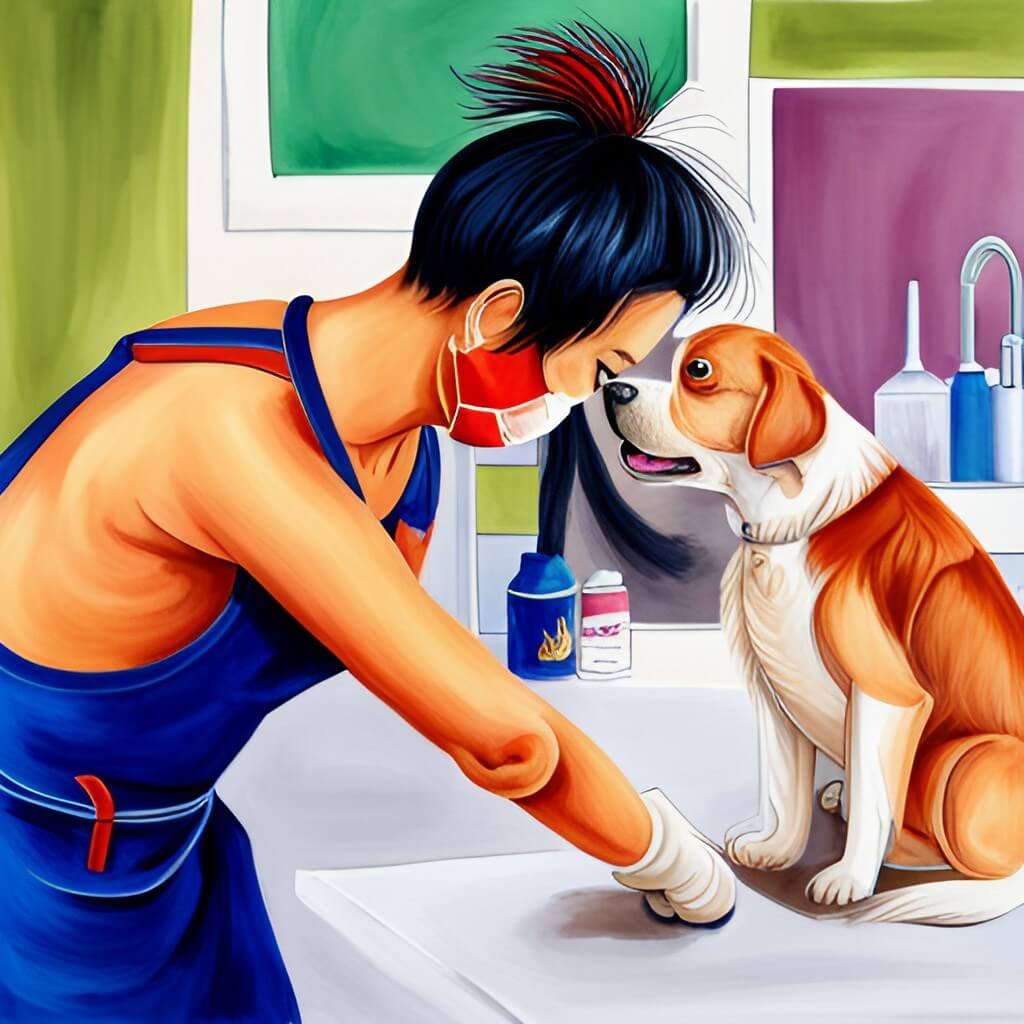Can there actually be too much information available today for the average dog owner to have at their fingertips? Just taking a few minutes to Google “Housetraining Dogs” I not only found millions of articles, but unfortunately, I also spotted thousands of myths still being published about the subject.
Check out the following popular claims about housetraining your dog and find out whether they are actually true or not:
1) If Your Dog Rolls Over On Her Back & Squirts Pee Then She Needs Housetraining
This is false. A dog that pees while she’s on her back doesn’t have housetraining issues. Instead, she’s extremely polite and/or a little bit scared. This type of behavior is called submissive urination and it occurs when a dog is showing respect or deference to another dog or person.
If your dog greets you in this manner, adjust your body language to be a little less intimidating: Ignore her for a minute or two when you first come home, don’t look directly at her and crouch down on the floor so that you’re at her level when you touch her.
2) Club Soda Is Great For Cleaning Up Your Dog’s Bathroom Accidents
This is also false. Club soda may get rid of the stain from a little puddle or pile, but it won’t get rid of the odor. Unless you remove the odor with an enzymatic cleaner designed especially for this task, your dog almost certainly will return to the scene of her crime and perform an encore.
Don’t use ammonia either. To your dog it will smell like urine, which is an open invitation for him to come back to the spot he anointed before and do it again.
3) It’s Better To Buy An Adult-Sized Crate For Your Puppy
Not true. A crate that is too big will encourage your puppy to sleep at one end and eliminate in the other. Still, buying a crate for each state of your puppy’s growth can be expensive. To save money and prevent in-crate accidents, choose an adult-sized metal crate that comes with a divider. The divider will keep your puppy from using the entire crate and can be adjusted as she grows.
4) If Your Puppy Has An Accident, Your Best Action Is To Clean It Up & NOT Scold Her
TRUE! Scolding or punishing your puppy won’t help her learn the bathroom basics. That’s because she won’t remember that she’s the cause of the little puddle or pile that’s got you so upset. Clean it up without comment, and promise yourself that you’ll keep a closer eye on your dog.
5) Crates Are Cruel & They Do Not Help With Housetraining
This idea is false. A properly used crate isn’t cruel at all and makes the housetraining process much easier. Crates appeal to dogs’ instinctive desire to have a snug, secure den to call their own. Your dog’s desire to refrain from dirtying that den will help her develop the physical control she needs to become reliably housetrained.
6) You Can Consider Your 6-Month-Old Puppy Housetrained If She Hasn’t Had An Accident In 30 Days Or So
This is true. Housetraining takes some time, but you can consider the process complete if your dog is at least 6 months of age and has been free of an accident for at least a month.
Younger dogs (younger than 6 months) don’t have the physical capacity to hold their poop and pee dependably – and a dog of any age that keeps having accidents really can’t be considered fully housetrained.
7) Your Dog Will Always Let You Know When She Needs To Go Potty Outdoors
False – at least not for a while…
Most dogs take awhile to figure out how to tell their people that they need a bathroom break – and some dogs never learn how to get such a message across. But even if your dog doesn’t come and tell you she needs to “do the doo”, you can watch her for signals that a bathroom event may be imminent. Intense sniffing, pacing and circling all may indicate that a doggie doo is on the way.
8) Dogs Will Pee & Poop Inside Of The House Just To Spite You
While this may seem to be the issue, as it’s hard for some owners to handle housetraining, this claim is also false. Dogs are not vengeful creatures. They eliminate in the house for one of three reasons: They’re sick, they’ve had to wait too long for a bathroom break, or their owners haven’t housetrained them properly.
9) Housetraining Should Wait Until A Puppy Gets Used To Her New Home
False. While many dog training techniques should wait until your pup reaches a certain age, housetraining should start immediately upon the pup arriving at your home. A puppy of any age can start learning proper potty control. Teach her to enjoy her crate; feed her and take her out at regular intervals; and watch her carefully whenever she’s out of her crate. That said, she probably won’t be fully housetrained until she’s 6 months old or so.








